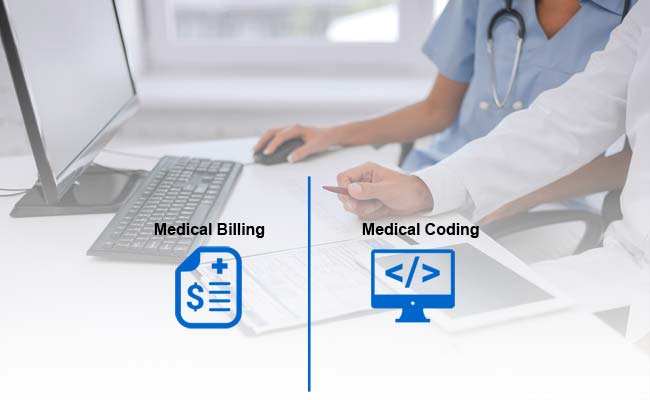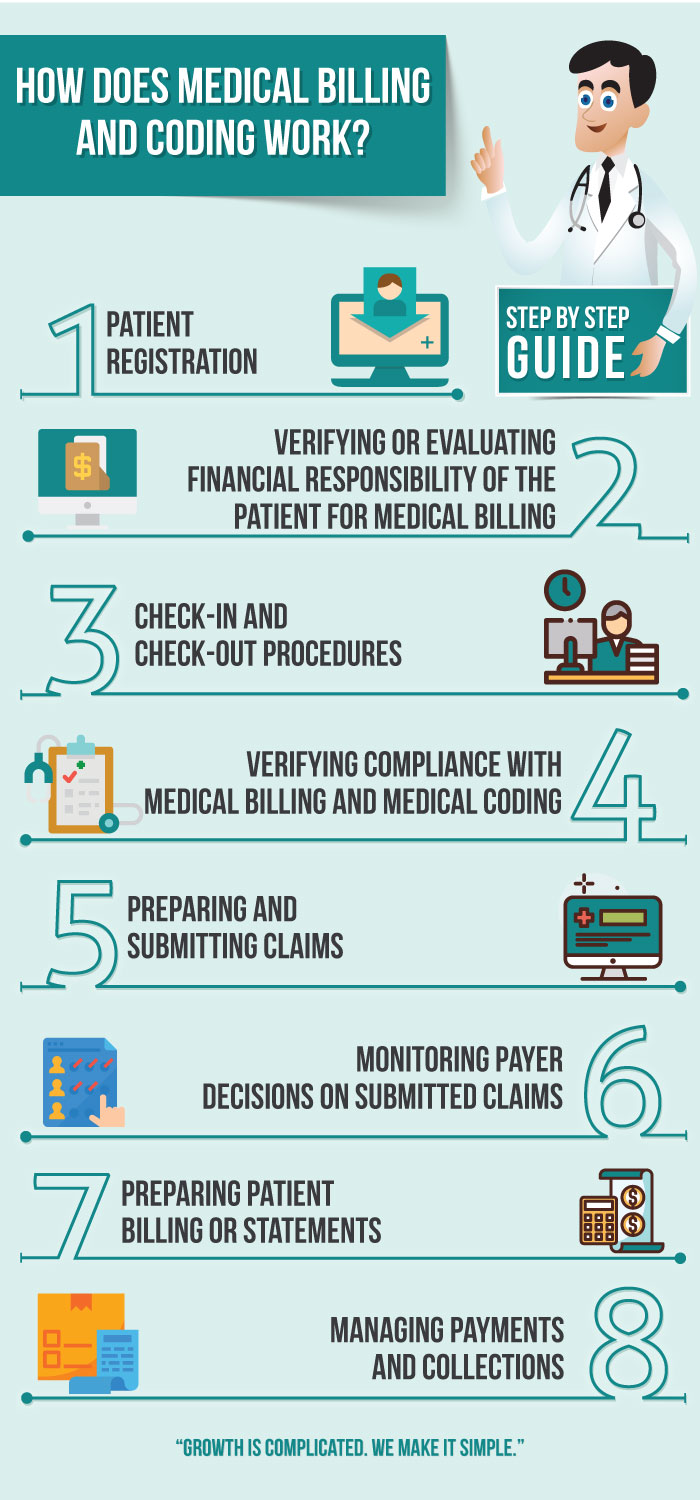In the world of healthcare administration, there are various roles that contribute to the smooth operation of medical facilities. One question that often arises is whether medical billing and coding are the same thing. While they both play a crucial role in the billing process, medical coding and medical billing are actually two distinct functions. Understanding the differences between these two disciplines is essential for anyone interested in pursuing a career in healthcare administration.
In our upcoming article, we will delve deeper into the world of medical billing and coding to clear up any confusion surrounding these two terms. We will explore the specific responsibilities and skills required for each role, as well as how they collaborate to ensure accurate and efficient payment processes. Stay tuned to discover the intricacies of medical billing and coding, and gain a comprehensive understanding of these vital components in healthcare administration. Medical billing and coding are both vital components of the healthcare industry, but they are not the same thing. While they are closely related and often performed by the same professionals, there are distinct differences between the two disciplines. In this article, we will define medical billing and coding, explain their roles in the healthcare system, discuss the importance of each, explore the training and education required, and delve into the career opportunities available in these fields.
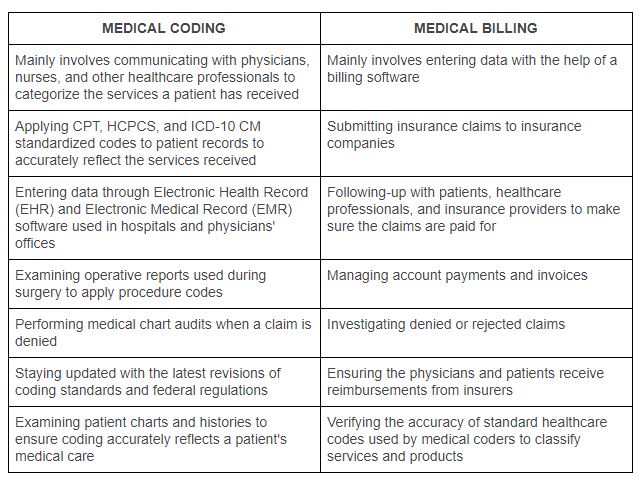
Definition of Medical Billing
Medical billing is the process of submitting and following up on claims with health insurance providers in order to receive payment for services rendered by healthcare providers. It involves creating and transmitting claims, tracking them for payment, and addressing any denials or discrepancies. Medical billers play a crucial role in ensuring that healthcare organizations receive adequate compensation for their services and that patients are billed correctly for the care they receive.
Explanation of Medical Billing
Medical billing encompasses a range of tasks, including verifying insurance eligibility, obtaining necessary pre-authorizations, reviewing medical documentation, and translating medical procedures into billable codes. These codes convey specific medical procedures, diagnoses, and treatments, allowing healthcare providers to bill insurance companies accurately. Moreover, medical billers play a vital role in preparing claims and submitting them to insurance companies in a timely manner.
Role of Medical Billers
Medical billers act as intermediaries between healthcare providers and insurance companies. They are responsible for navigating the complexities of medical billing systems, ensuring that claims conform to billing and coding guidelines, and resolving any claims issues that may arise. Billers must have a thorough understanding of insurance policies, as well as the ability to communicate effectively with both healthcare providers and insurance companies.
Importance of Medical Billing
Medical billing is essential for the financial viability of healthcare organizations. Accurate and timely reimbursement ensures that healthcare providers can continue to offer quality care and invest in necessary medical equipment and technologies. Billing errors or delays can have significant financial implications for healthcare providers, leading to a strain on resources and potentially affecting patient care. Therefore, the role of medical billers cannot be overstated in the healthcare system.
Definition of Medical Coding
Medical coding, on the other hand, involves the transformation of healthcare diagnoses, procedures, medical services, and equipment into universal alphanumeric codes. These codes are used for various purposes, such as reimbursement, statistical analysis, and medical research. Medical coders play a crucial role in ensuring that accurate and detailed information is captured in a standardized format, facilitating effective communication between healthcare providers, insurance companies, and other stakeholders.
Explanation of Medical Coding
Medical coding involves the assignment of specific codes to different healthcare services, procedures, diagnoses, and treatments using standardized coding systems, such as the International Classification of Diseases (ICD) and the Current Procedural Terminology (CPT) codes. These codes provide a common language that facilitates the exchange of medical information and ensures consistency in healthcare data.
Role of Medical Coders
Medical coders are responsible for reviewing patient medical records and assigning appropriate codes to the services provided, based on the documentation provided by healthcare providers. They must have a deep understanding of coding guidelines, as well as medical terminology and anatomy. Coders play a vital role in maintaining accurate medical records, supporting the billing process, and ensuring compliance with regulatory requirements.
Importance of Medical Coding
Medical coding serves as the backbone of healthcare data management. It enables the generation of accurate and reliable statistics, facilitates research and analysis, and supports healthcare policy-making. By assigning specific codes to medical services and conditions, healthcare providers can track trends, evaluate the effectiveness of treatments, and assess the incidence and prevalence of diseases. Accurate coding also ensures appropriate reimbursement for healthcare services and minimizes fraudulent or improper billing practices.
Differences between Medical Billing and Coding
While medical billing and coding are closely intertwined, they involve distinct tasks and require different skill sets. Medical billing primarily focuses on the financial aspects of healthcare, ensuring that claims are submitted correctly and paid in a timely manner. Coding, on the other hand, involves the translation of medical services and conditions into standardized codes, capturing the necessary information for billing and data management purposes.
Distinct Tasks Performed in Medical Billing
In medical billing, professionals are responsible for verifying insurance coverage, obtaining prior authorizations, submitting claims, and following up with insurance companies to ensure timely reimbursement. They must have a solid understanding of insurance policies, medical coding systems, and billing regulations. Billing professionals also play a role in addressing claim denials and resolving billing discrepancies.
Distinct Tasks Performed in Medical Coding
Medical coders are responsible for reviewing and analyzing medical records to assign appropriate codes to diagnoses, procedures, and treatments. They must have a comprehensive understanding of medical terminology, anatomy, coding guidelines, and insurance regulations. Coders also play a crucial role in auditing medical documentation to verify the accuracy and completeness of coding assignments.
Varied Skill Sets Required for Billing and Coding
Medical billing requires proficiency in insurance policies, financial management, and communication skills. Billers must have strong attention to detail, as well as the ability to navigate complex billing systems and resolve conflicts with insurance companies. Coding, on the other hand, demands a deep understanding of medical terminology, anatomy, and coding guidelines. Coders must possess analytical skills, attention to detail, and the ability to interpret medical documentation effectively.
Importance of Medical Billing and Coding
Both medical billing and coding are essential for the efficient functioning of the healthcare system. They ensure accurate reimbursement for healthcare services, maintain proper documentation, and facilitate smooth operations within healthcare organizations.
Ensuring Accurate and Timely Reimbursement
Medical billing and coding work in tandem to ensure that healthcare providers receive adequate compensation for the services they provide. Accurate coding enables healthcare providers to bill insurance companies correctly, while medical billing professionals verify insurance coverage, submit claims, and follow up on payments. Failure to properly bill and code can result in delayed or denied reimbursements, adversely affecting the financial stability of healthcare organizations.
Maintaining Proper Documentation
Proper documentation is crucial for patient care, medical research, and compliance with legal and regulatory requirements. Medical coding ensures that medical records contain accurate and detailed information about diagnoses, treatments, and procedures, supporting clinical decision-making and continuity of care. Medical billing also relies on accurate documentation to support claims and provide evidence of services provided.
Facilitating Efficient Healthcare Operations
Medical billing and coding contribute to the overall efficiency of healthcare organizations. By ensuring accurate billing and reimbursement, healthcare providers can maintain financial stability and allocate resources effectively. Proper coding supports data analysis, research, and quality improvement efforts within healthcare organizations, enabling better patient outcomes and informed decision-making.
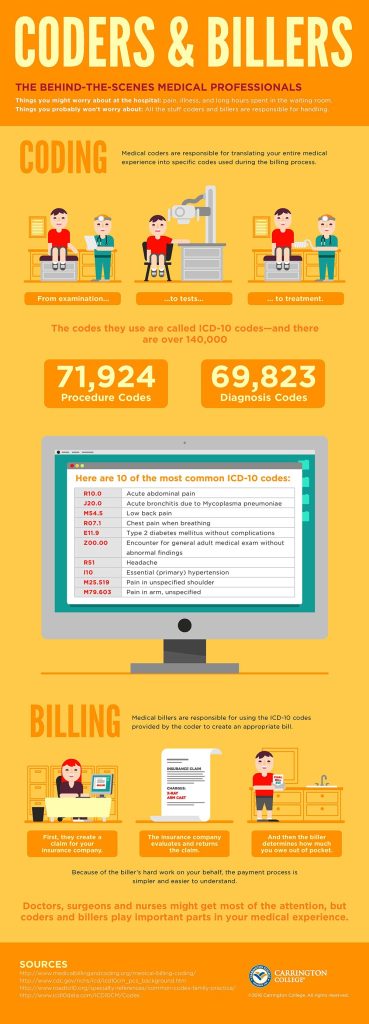
Training and Education
Both medical billing and coding require specialized training and education to excel in the field. While some similarities exist, each discipline has specific requirements and certifications.
Medical Billing Education and Certification
To pursue a career in medical billing, individuals typically enroll in a medical billing and coding program or earn an associate degree in health information technology. These programs provide instruction in medical terminology, anatomy, coding systems, and billing procedures. Upon completion of the program, individuals can pursue professional certifications, such as the Certified Professional Biller (CPB) certification offered by the American Academy of Professional Coders (AAPC).
Medical Coding Education and Certification
To become a medical coder, individuals must complete specialized training in medical coding. This can be done through a coding certificate program or an associate or bachelor’s degree in health information management. Coding programs cover topics such as anatomy, medical terminology, coding guidelines, and billing regulations. Coders can pursue professional certifications, such as Certified Coding Specialist (CCS) or Certified Professional Coder (CPC), offered by organizations like the American Health Information Management Association (AHIMA) or the AAPC, respectively.
Similarities and Differences in Training Programs
While medical billing and coding training programs often share foundational courses, such as medical terminology and anatomy, they diverge in emphasis and depth of coding knowledge. Medical billing programs typically focus more on insurance and reimbursement procedures, while coding programs delve deeper into coding guidelines and accuracy. However, both disciplines require a solid understanding of medical terminology, anatomy, and coding systems, as well as the ability to navigate healthcare technology and regulations.
Career Opportunities in Medical Billing and Coding
Medical billing and coding offer promising career opportunities in the healthcare industry. With the growing demand for healthcare services and increasing complexity of insurance reimbursement, professionals in these fields are in high demand.
Job Prospects and Demand
According to the Bureau of Labor Statistics (BLS), employment of medical records and health information technicians, including medical billers and coders, is projected to grow 8 percent from 2019 to 2029, much faster than the average for all occupations. As the population continues to age and healthcare technology advances, there is an increased need for professionals who can manage medical records, handle billing and coding tasks, and ensure compliance with regulatory requirements.
Salary Potential in the Field
The salary potential for medical billers and coders varies depending on factors such as experience, education, certification, and geographical location. According to the BLS, the median annual wage for medical records and health information technicians was $44,090 in May 2020. However, salaries can range significantly, with top earners exceeding $71,150 annually. Additionally, professionals with advanced certifications, such as Certified Professional Biller (CPB) or Certified Professional Coder (CPC), may command higher salaries and have more advancement opportunities.
Advancement Opportunities
Both medical billing and coding offer opportunities for career advancement. Professionals can specialize in a specific area within the field, such as billing, coding audits, or compliance. Advancement can also be achieved through obtaining advanced certifications, pursuing higher education, or gaining experience in managerial roles. With further education and experience, individuals can transition into positions such as coding supervisors, billing managers, or health information management directors.
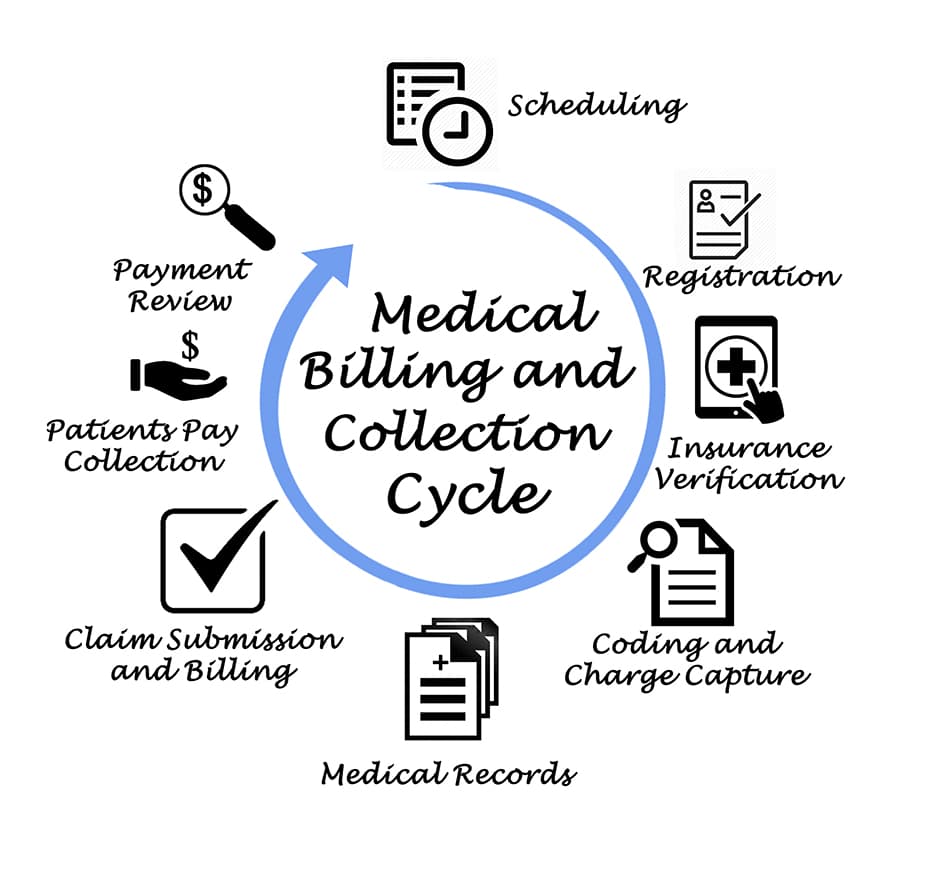
Skills Required for Medical Billing and Coding
Successful medical billers and coders possess a specific set of skills that are essential for performing their roles effectively.
Attention to Detail and Accuracy
Medical billing and coding require meticulous attention to detail and a commitment to accuracy. Billers must ensure that claims contain accurate information, including the correct codes and documentation, to avoid claim denials and delays. Coders must meticulously review medical records, interpret the documentation provided, and assign the most appropriate codes to reflect the services rendered. Detail-oriented professionals can help minimize errors, improve reimbursement rates, and support effective healthcare operations.
Knowledge of Coding Systems and Regulations
Proficiency in coding systems, such as ICD and CPT, is crucial for medical billers and coders. The ability to accurately assign codes based on medical documentation ensures proper reimbursement and compliant billing practices. Additionally, professionals must stay current with evolving coding guidelines and regulations to comply with industry standards and best practices.
Understanding of Medical Terminology
Medical billing and coding professionals must possess a solid understanding of medical terminology and anatomy. This knowledge enables them to interpret medical documentation and accurately assign codes to reflect the specific diagnoses, procedures, and treatments provided. Familiarity with medical terminology also helps billers and coders communicate effectively with healthcare providers and other stakeholders.
Job Responsibilities
Medical billers and coders have distinct job responsibilities that contribute to the successful operation of healthcare organizations.
Billing Tasks and Responsibilities
Medical billers are responsible for verifying insurance coverage, obtaining prior authorizations, and accurately submitting claims to insurance companies or government payers. They must understand billing guidelines, communicate with insurance companies to resolve claim issues, and follow up on outstanding payments. Billers may also be responsible for handling patient inquiries, explaining billing processes, and ensuring patient satisfaction with their billing experience.
Coding Tasks and Responsibilities
Medical coders review and analyze medical records to assign the appropriate codes for diagnoses, procedures, and treatments. They must be proficient in coding systems and accurately translate medical documentation into standardized codes. Coders also perform coding audits to verify compliance with coding guidelines and regulations. Additionally, medical coders may collaborate with healthcare providers to clarify documentation and ensure accurate code assignment.
Collaboration Between Billers and Coders
Medical billing and coding are intertwined processes that require collaboration between billers and coders. Effective communication and collaboration are essential to ensure accurate claims submission and timely reimbursement. Billing professionals rely on the accurate coding provided by coders to complete claims, while coders may seek clarification or additional information from billers when reviewing medical records. This collaboration ensures that billing and coding processes align and support each other, reducing the likelihood of errors and optimizing reimbursement rates.
Challenges in Medical Billing and Coding
Medical billing and coding professionals face several challenges in their day-to-day work, including complex coding guidelines, insurance claim denials, and ever-changing regulations.
Complex Coding Guidelines
Coding guidelines can be complex and constantly evolving. Professionals must stay current with changes and updates to ensure accurate and compliant coding practices. Accurate coding is essential for reimbursement and medical research, and failure to adhere to coding guidelines can result in claim denials, audits, or legal repercussions.
Insurance Claim Denials
Insurance claim denials pose challenges for medical billers and coders. Denials can occur for various reasons, including coding errors, lack of sufficient documentation, or coverage limitations. Billers must possess the knowledge and skills to identify and address claim denials, such as appealing denials or resolving discrepancies with insurance companies.
Ever-Changing Regulations
The healthcare industry is subject to constant regulatory changes. Medical billers and coders must stay updated on regulations related to coding guidelines, billing practices, and compliance requirements. Changes in regulations can impact reimbursement rates, documentation requirements, and coding standards. Staying informed and adapting to regulatory changes is essential for professionals in these fields.
Conclusion
In conclusion, medical billing and coding are not the same thing but are complementary disciplines within the healthcare industry. Medical billing focuses on financial aspects, such as submitting claims and following up on reimbursements, while medical coding involves assigning standardized codes to medical procedures and diagnoses. Both professions require specific skills, knowledge of coding systems and regulations, and attention to detail. Medical billing and coding are crucial for accurate reimbursement, maintaining proper documentation, and facilitating efficient healthcare operations. The career opportunities in both fields are promising, with a growing demand for professionals who can effectively navigate the complexities of healthcare billing and coding. Whether you choose to pursue a career in medical billing or coding, you will have the opportunity to contribute to the healthcare industry and make a difference in patient care.
